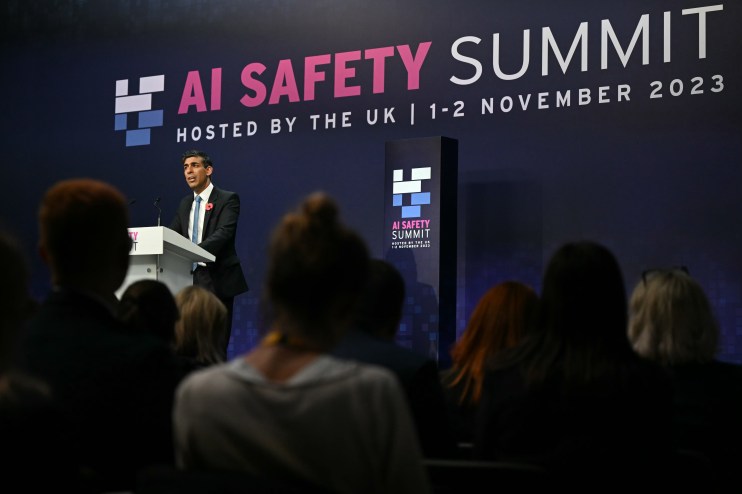Without more immigration, we will fail to build a future-focused Britain

AI experts want to come and work in the UK, but our immigration policy is stopping them, writes Derin Kocer.
Yesterday Parliament was a beacon of tradition: ceremonial robes, golden carriages, ritualistic kidnapping of an MP. But at the heart of the King’s Speech was making Britain ready for a future of progress, looking towards the future. Over the last week, Rishi Sunak has made it clear how he plans to do that, by embracing and being at the forefront of artificial intelligence technology. Yet these aspirations were conspicuously absent from King Charles’ speech.
Despite much to’ing and fro’ing over whether or not AI would wipe out humankind last week at Bletchley park, there was only a small reference to the technology as King Charles, with a slightly bemused look, read out the words “machine learning”.
Around the world, there is a fierce fight for the people who understand this technology. If we want to deliver on Sunak’s plans, we need these people.
Professionals with the skills to build artificial brains are rare and highly sought after. A poll among international AI experts reveals that almost half of them see “the ease of immigration and incentives” as an important factor in migrating. However, in the UK, migrant AI researchers are highly likely to report “visa and immigration issues” as a serious problem for their research.
The UK’s competitors are already taking action. Joe Biden’s recent executive order on AI included language on making it faster and easier for AI professionals to migrate there. Although China is less attractive, it has been implementing policies to make top Chinese international students either come back or share know-how. We can’t afford to sit idly by.
On the bright side, the UK is the second most popular potential destination for leading AI researchers, after the US, thanks to our tech ecosystem, culture and democratic institutions. People will come if we lift the gates.
The first step should be to retain the talent we already have. Only five per cent of international students who graduated in 2016 remain in the UK with a work visa today. This is a waste of potential. We should ditch sponsorship requirements for international science graduates who will be working in companies that are developing cutting-edge AI. Most of these firms are startups and don’t have the means to deal with the sponsorship hurdles.
Additionally, the UK is home to some of the world’s most selective postgraduate programmes in advanced engineering. Even though employers all over the world see these students as top candidates, we treat them as ordinary students. Most foreign PhD candidates can’t launch businesses because of their visa status. We should create a separate migration route for these individuals that will give them as much flexibility as possible and, ideally, permanent residency upon graduation.
Secondly, the UK must make migration much more flexible for skilled professionals. The sponsorship system shackles talented workers to their employers and curbs entrepreneurialism. This is a waste of potential. An investment received from an acknowledged VC should count as a migrant worker’s sponsorship, without them being required to switch visas.
Tailored for the field of AI, the UK Government should keep the Shortage Occupation List updated for AI practitioners. Skilled professionals who have the experience to make a difference in this sector should be given easy access to permanent residency.
Also, rather than waiting for people to come, the UK should proactively spot and attract talent. In cooperation with the tech industry, a specialised government taskforce should be established to spot unusually talented individuals who are pushing AI forward and they must be granted easy access to jobs and the migration system.
Lastly, the scope of the High Potential Individual visa, which gives graduates of the top 100 universities a two-year work permit, should be expanded to include top AI research facilities. The list of universities at the moment doesn’t include highly selective research facilities such as Carnegie Mellon and the Indian Institutes of Technology.
An optical obsession with ‘overall migration figures’ has made talking about any kind of immigration an uneasy subject. However, the rightful pursuit of making the UK a hub for AI innovators requires a shift from this silence. There is an international race for talent and we must act swiftly to attract the world’s top minds. They will help us lead.